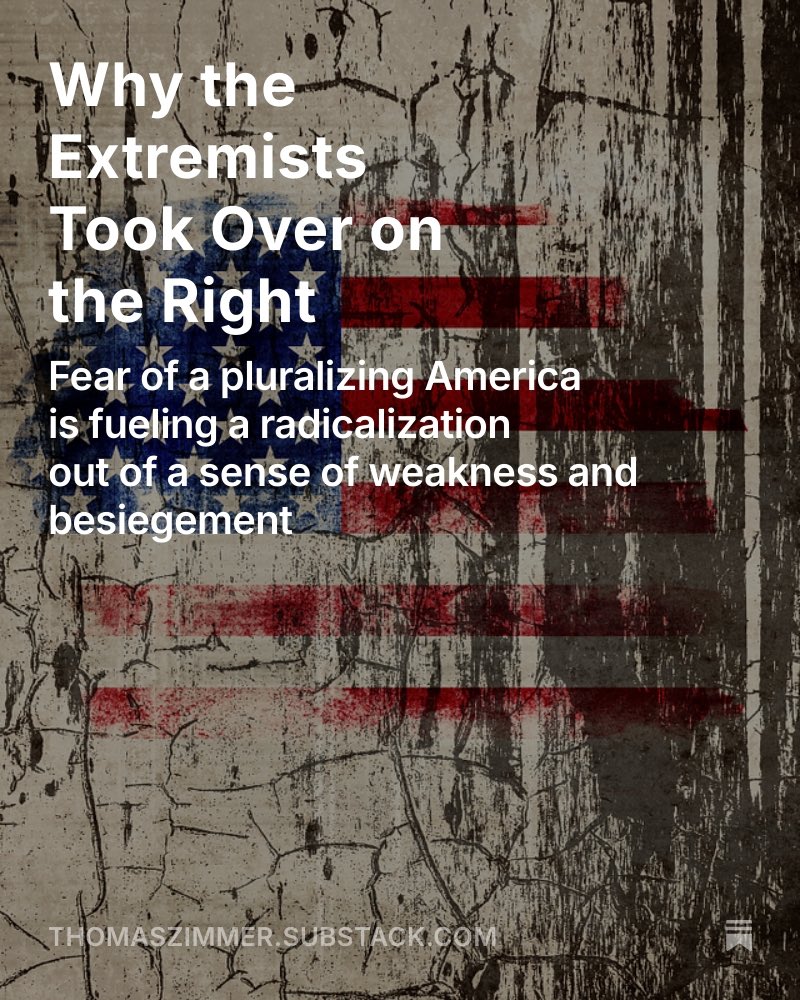“Cancel Culture”: How a Moral Panic Is Capturing America and the World
New episode of @USDemocracyPod – with @adriandaub:
New episode of @USDemocracyPod – with @adriandaub:

Let’s dive deep into the #CancelCulture moral panic, what it can tell us about U.S. society, culture, and politics, and how it has spread across the “West.” There is no one better equipped to help us do that than @adriandaub. 2/
The “cancel culture” narrative diagnoses a national emergency: an acutely dangerous situation in which radical “woke” leftists are undermining free speech by imposing an ever-more restrictive culture of censoriousness on the country, threatening anyone who dares to speak up. 3/
But there is no actual cancel culture. Our argument is *not* that no one has ever had to face unfair consequences for what they said publicly – but that the evidence for such a worsening national emergency caused by “wokeism” running amok is simply not there. 4/
If we don’t accept the pervasive “cancel culture” discourse as a mere representation of an objectively existing free speech crisis, then how do we explain and interpret its omnipresence and the fact that so many people are fully committed to it at this exact moment? 5/
We talk about why the college campus is playing such a crucial role in the “cancel culture” discourse, and in the elite imagination more broadly, and discuss how our own experience as college professors relates to these debates. 6/
We grapple with why all this is happening now, with the genealogy of the moral panic, how to situate it in the long tradition of reactionary moral panics, and how it began to crystallize as a distinct phenomenon in the mid-2010s. 7/
Then we turn to Germany as a case study of how the moral panic has spread internationally. German reactionaries are obsessed with the idea of “woke cancel culture” spilling over from the U.S. - and leading conservatives are advocating for a GOP-style culture wars politics. 8/
Reactionaries have found willing allies among self-proclaimed moderates and liberals who have propagated the idea that “cancel culture” constitutes an acute threat. Across the “West,” the moral panic is, to a significant degree, a creation of the “respectable” center. 9/
What can we learn from the German “cancel culture” fixation about the role of the U.S. in the imaginary of Germany’s political and cultural elite? How does the transfer of “cancel culture” anecdotes and anxieties across the Atlantic work in practice? 10/
Across the “West,” the self-proclaimed defenders of “free speech” get into trouble as soon as they present their plans of how to counter “cancel culture”: Those always turn out to be blatantly illiberal and authoritarian, and they uniformly fail to attract majority support. 11/
This is by far the longest episode we have ever released. And I promise it’s the deepest dive into the “cancel culture” discourse you could possibly hope for.
More here: podcasts.apple.com/us/podcast/is-…
More here: podcasts.apple.com/us/podcast/is-…

Addendum: If you want a short introduction into what the “wokeism/cancel culture” moral panic looks like in Germany, and how it’s obsessed with what is supposedly happening in and “spilling over” from the U.S., I wrote about it below:
https://twitter.com/tzimmer_history/status/1623041940848578586
• • •
Missing some Tweet in this thread? You can try to
force a refresh






